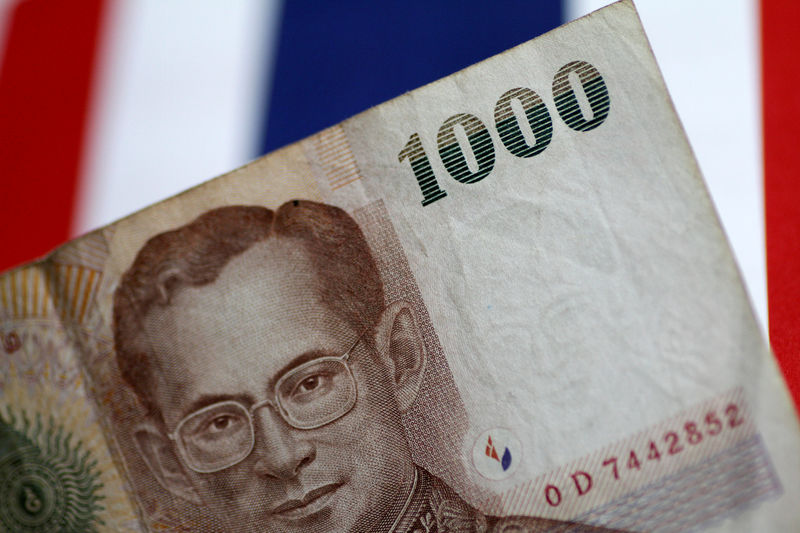Bill Gross warns on gold momentum as regional bank stocks tumble
Investing.com-- Most Asian currencies edged lower on Monday as the dollar remained firm ahead of fresh U.S. tariffs, while the Thai baht fell sharply on a no-confidence motion vote against the country’s prime minister, set to begin later in the day.
The US Dollar Index, which measures the greenback against a basket of major currencies, edged up 0.1% to 104.16, after rising 0.4% last week. The index reached over a 2-week on Friday after recent losses this year.
Asia FX down as markets prepare for Trump’s April 2 tariffs
Asian currencies remained subdued as investors assessed potential risks from upcoming U.S. trade tariffs.
Market sentiment was cautious following reports that President Donald Trump plans to implement a more selective approach to reciprocal tariffs starting April 2.
Instead of broad industry-wide levies, Trump’s administration is expected to focus on countries with significant trade imbalances with the U.S., according to a Wall Street Journal report.
The new measures could impact around 15% of nations with persistent deficits, a group reportedly dubbed the “dirty 15.”
Among the likely targets are G-20 economies, including major Asian exporters such as China, Japan, India, and Vietnam.
With trade-sensitive currencies already under pressure, investors are bracing for potential volatility as details of the policy emerge.
The Chinese yuan’s, both onshore USD/CNY and offshore USD/CNH pairs, inched 0.2% higher.
The South Korean won’s USD/KRW rose 0.3%.
The Singapore dollar’s USD/SGD edged up 0.2%, while the Australian dollar’s AUD/USD pair was largely steady.
The Indonesian rupiah’s USD/IDR pair jumped 0.5%, after gaining nearly 1% last week.
The Indian rupee’s USD/INR pair inched 0.1% lower.
Japanese yen lower despite rate hike prospects; PMI data disappoints
Speaking in parliament, Bank of Japan Governor Kazuo Ueda stated on Monday that the central bank remains committed to raising interest rates if core inflation moves closer to its 2% target, regardless of potential losses on its government bond portfolio.
The Japanese yen’s USD/JPY pair rose 0.3%, in line with the broader market.
In other news, data showed that Japan’s factory activity declined at the fastest pace in a year in March, with the au Jibun Bank manufacturing PMI dropping to 48.3 from February’s 49.0.
The service sector also contracted, with the PMI falling to 49.5 from 53.7, marking the first decline in five months.
Thai baht tumbles as PM Paetongtarn faces no-confidence motion
The Thai baht’s USD/THB pair dropped 0.8% on Monday.
Thai Prime Minister Paetongtarn Shinawatra faces a no-confidence motion in parliament starting March 24.
The opposition People’s Party accuses her of economic underperformance and undue influence from her father, ex-premier Thaksin Shinawatra.
